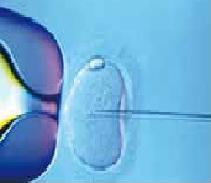 Scientists have developed the first genetic blood test for predicting the chances that in vitro fertilization (IVF) will lead to a successful pregnancy. The test is based on the finding that different subtypes of the FMR1 gene in potential mothers are associated with significantly different chances of conceiving with IVF. This is the first evidence that a specific gene appears to be directly associated with IVF outcomes. The study result says that the FMR1 gene, some forms of which are known to predict premature ovarian failure, could be used to predict at what age a woman’s fertility is going to start decreasing,” he said.
Scientists have developed the first genetic blood test for predicting the chances that in vitro fertilization (IVF) will lead to a successful pregnancy. The test is based on the finding that different subtypes of the FMR1 gene in potential mothers are associated with significantly different chances of conceiving with IVF. This is the first evidence that a specific gene appears to be directly associated with IVF outcomes. The study result says that the FMR1 gene, some forms of which are known to predict premature ovarian failure, could be used to predict at what age a woman’s fertility is going to start decreasing,” he said.
The study has also supported the belief that autoimmunity (immunity to one’s own cells or tissues) plays a role in infertility-a controversial topic among reproductive medicine specialists. Women with the “normal” FMR1 genotype had a 38.6 percent pregnancy rate; those with the “heterozygous-normal/high” genotype had a 31.7 percent pregnancy rate; and women found to have the “heterozygous-normal/low” genotype had a 22.2 percent pregnancy rate. The genotype associated with the lowest pregnancy rate was also associated with increased measures of auto immunity.

Be a part of Elets Collaborative Initiatives. Join Us for Upcoming Events and explore business opportunities. Like us on Facebook , connect with us on LinkedIn and follow us on Twitter , Instagram.












